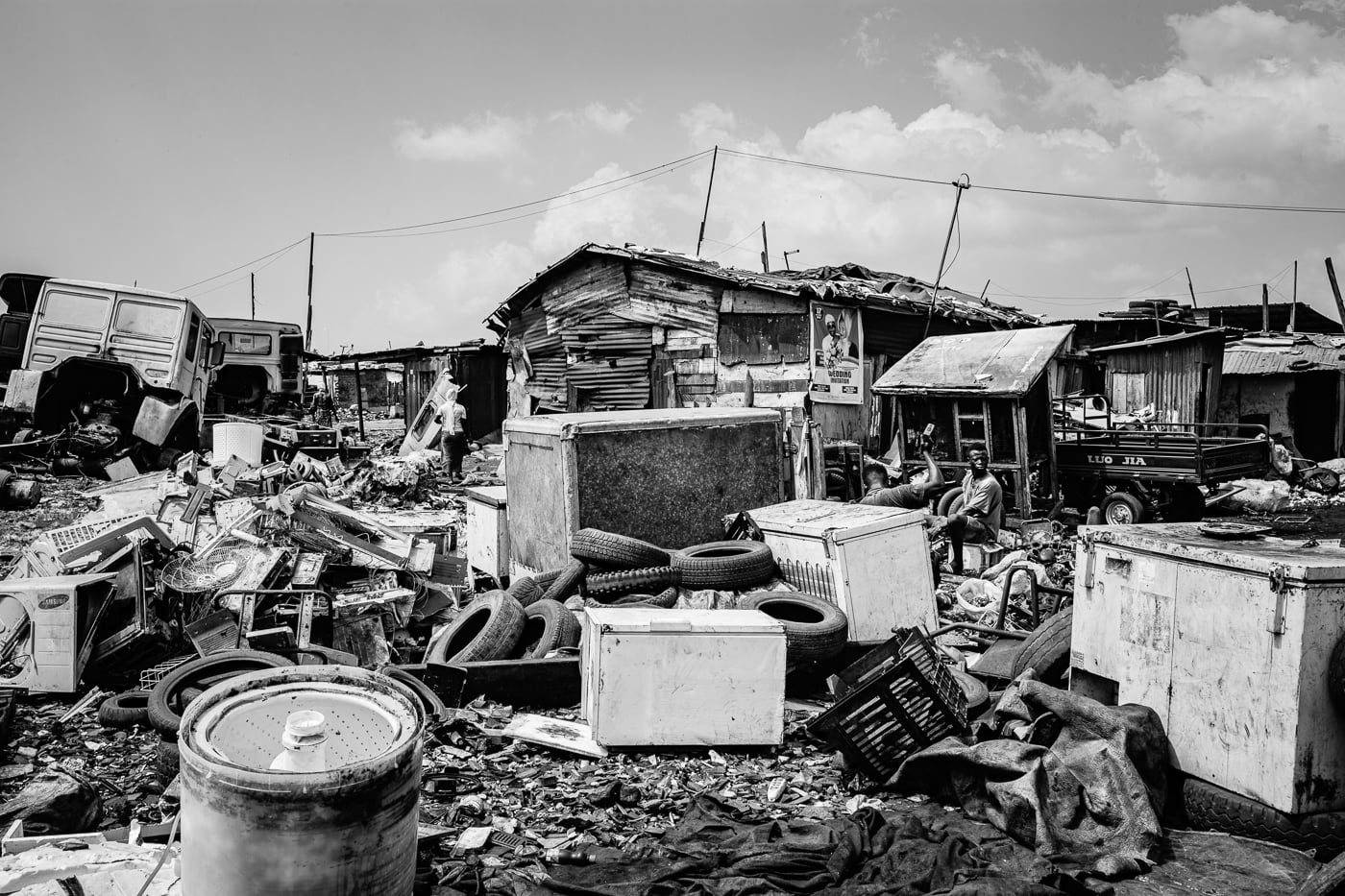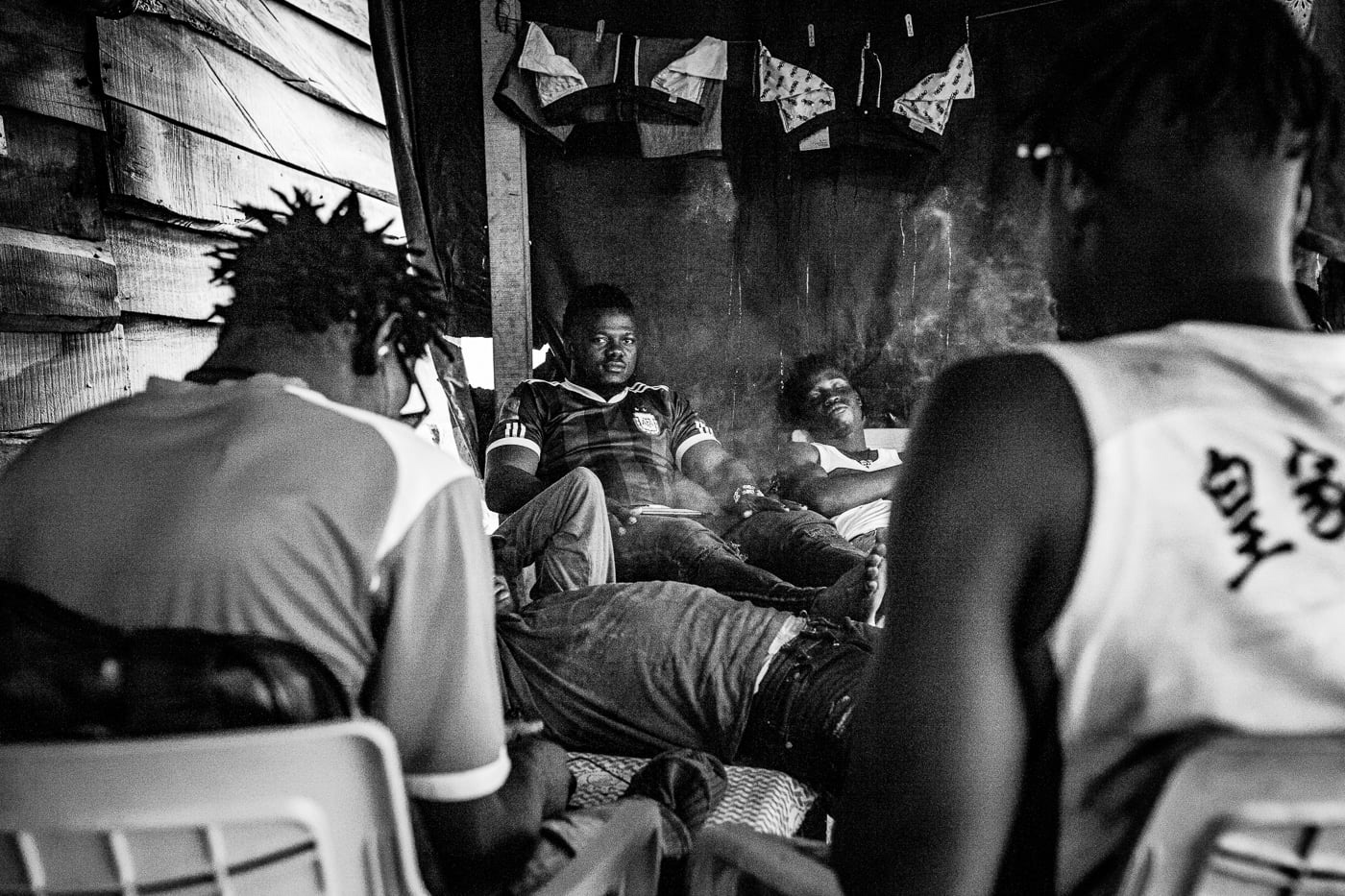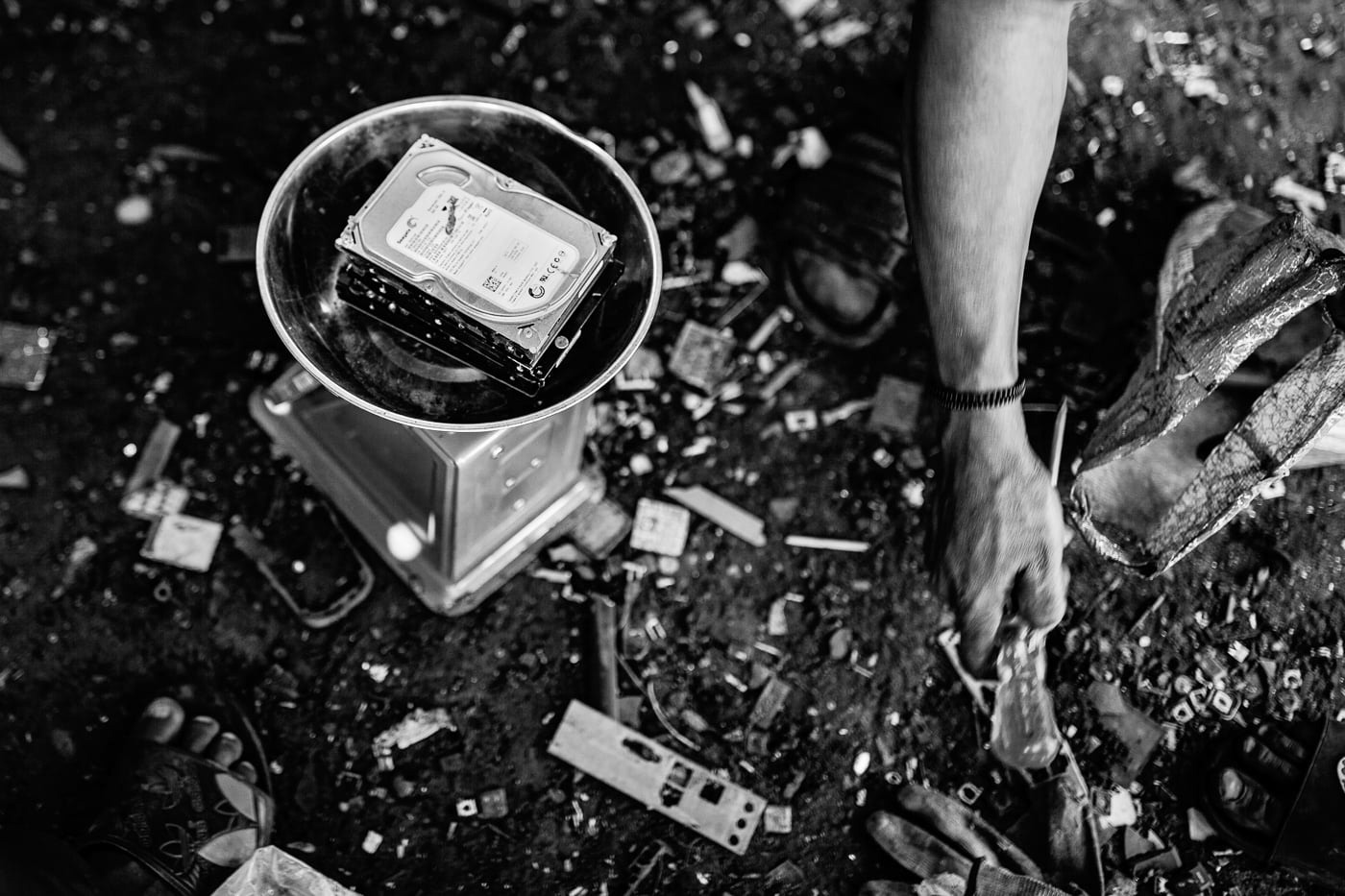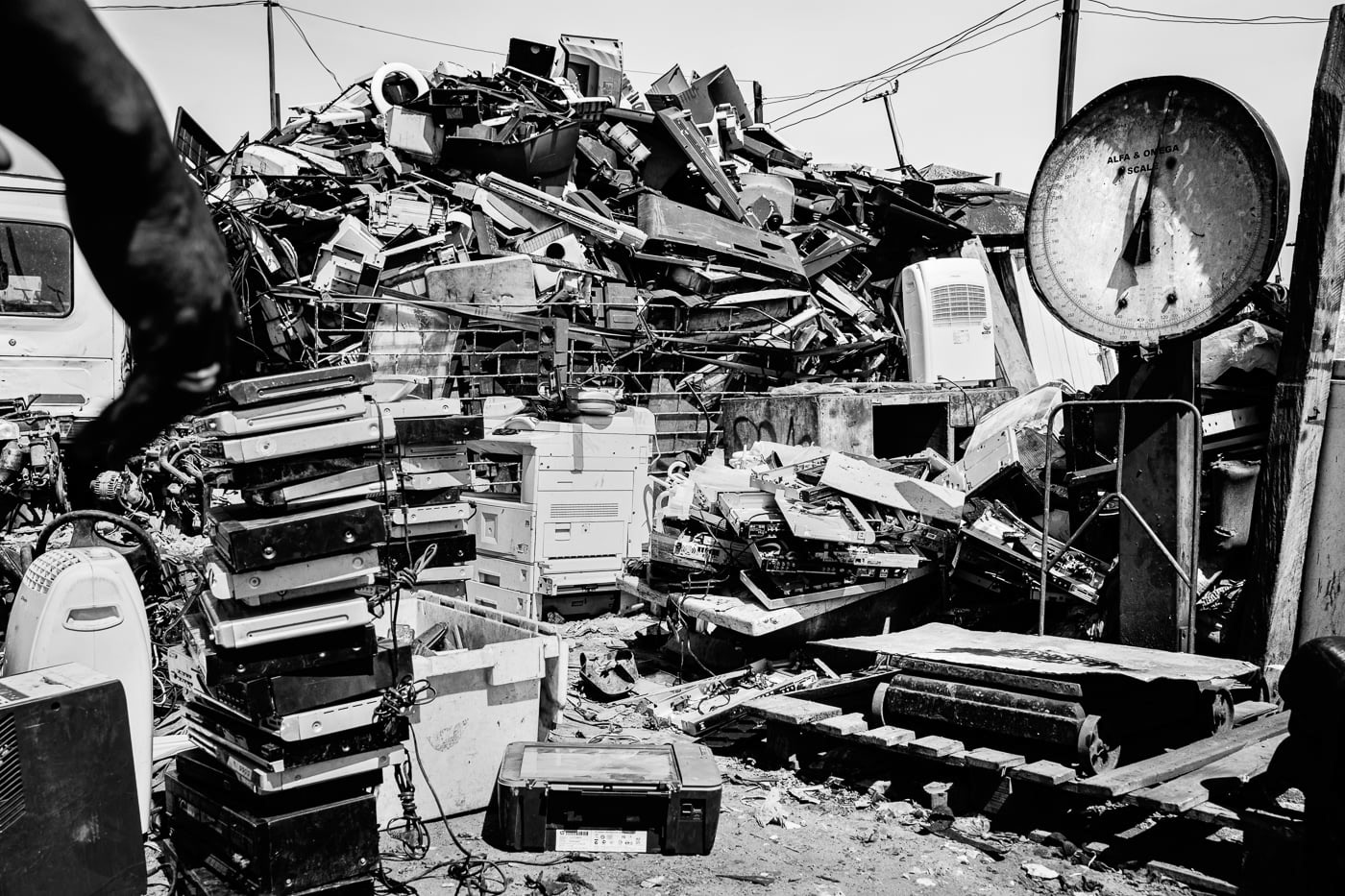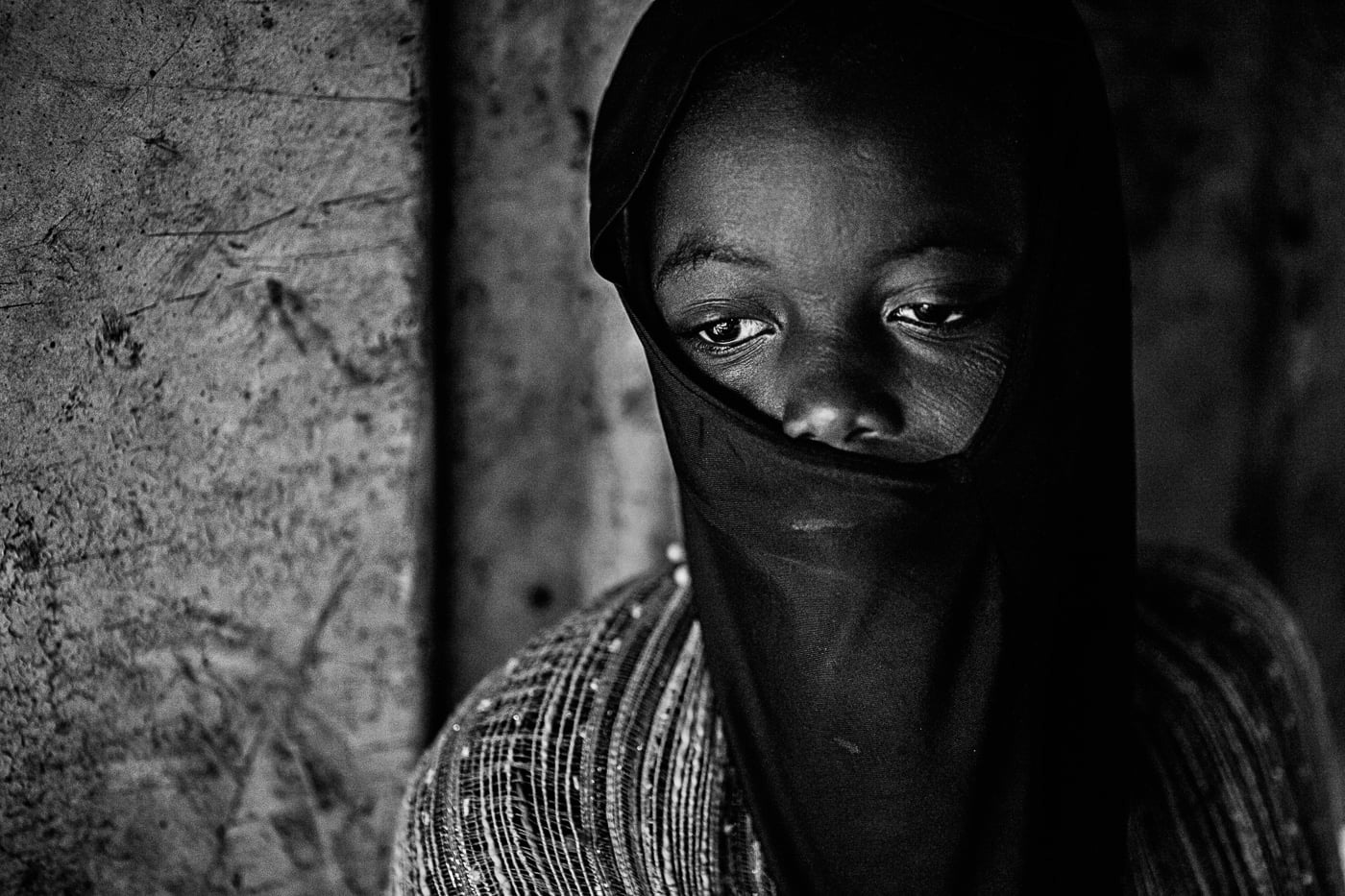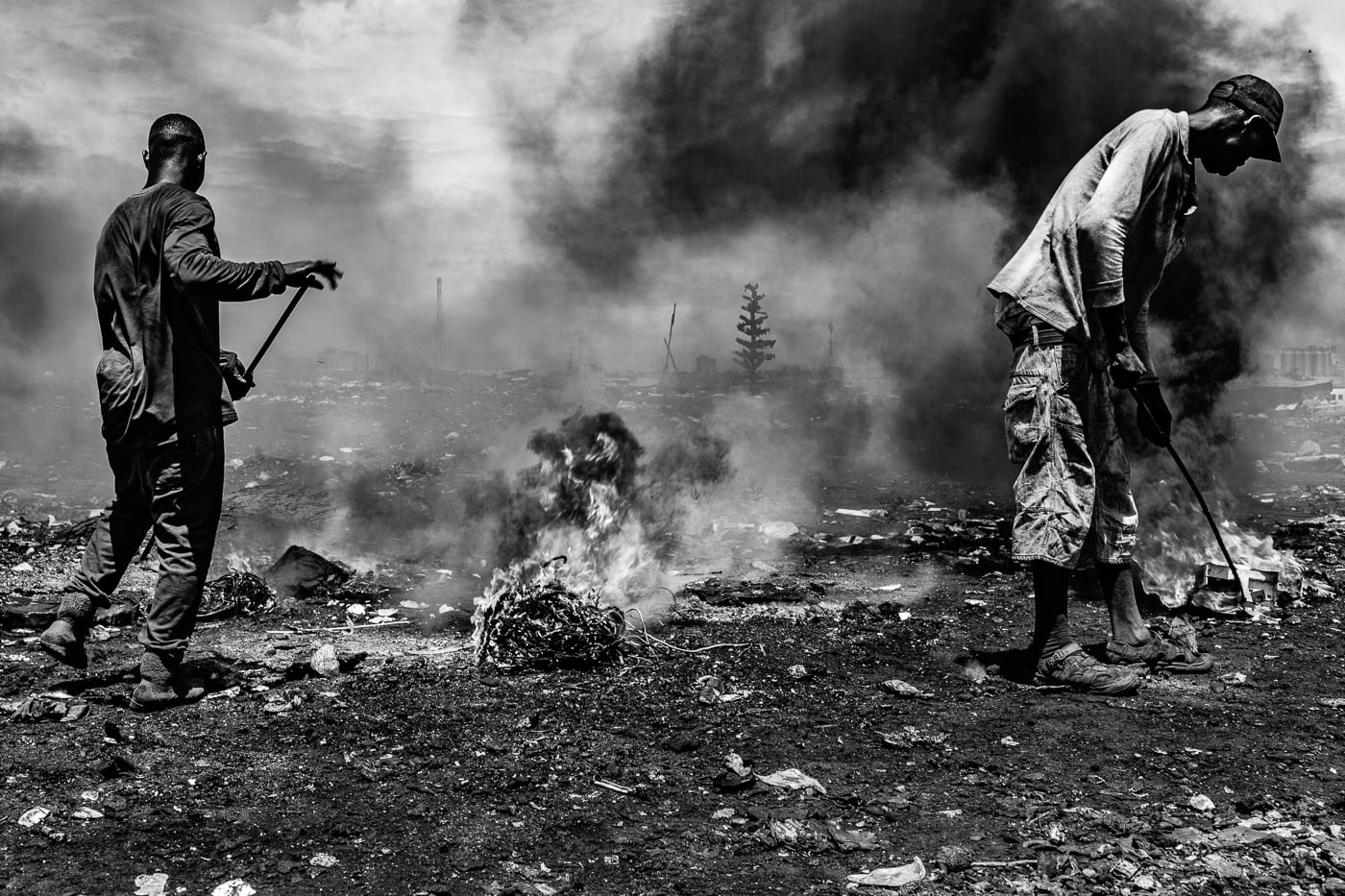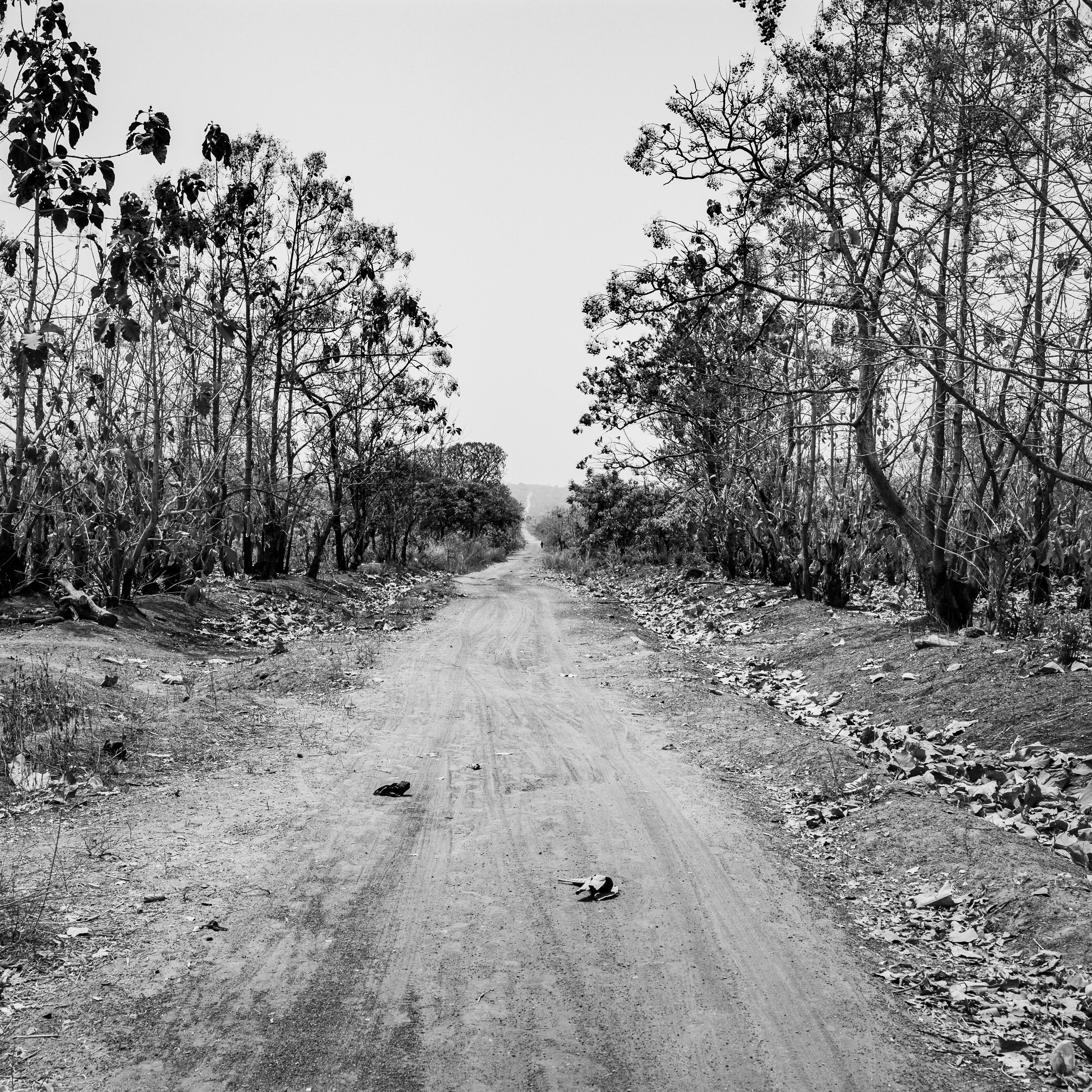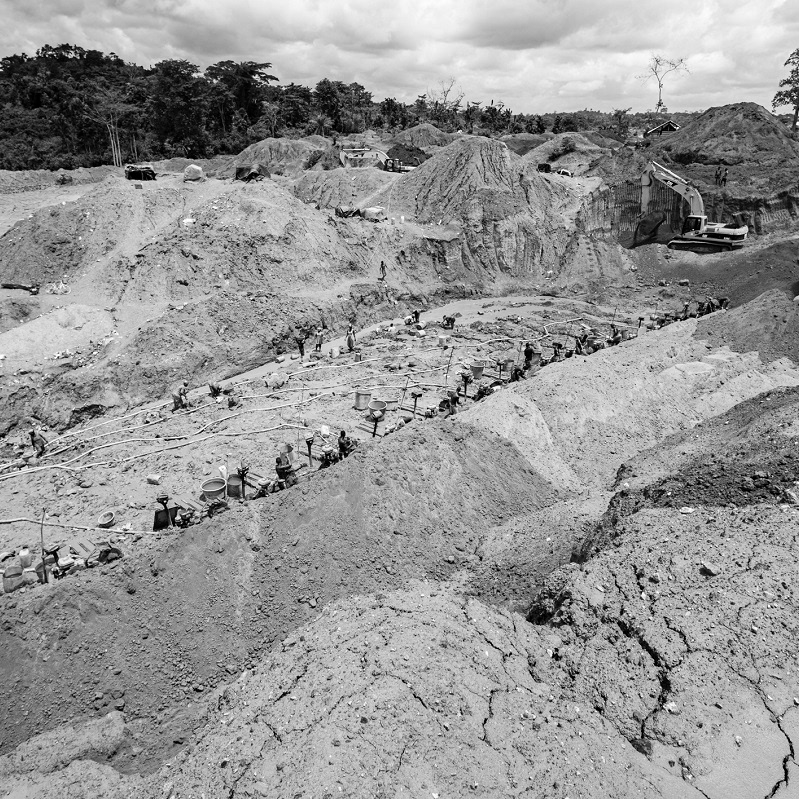According to the United Nations, around 50 million tons of electronic waste is discarded each year. This figure is projected to double by 2050.
At the same time, only 20 percent of e-waste is believed to be appropriately recycled. A significant proportion of this electronic waste is sent — often illegally — from Western countries to developing nations across Africa and Asia, where it is disposed of by informal workers under hazardous conditions.
Ghana is one of the main importers of second-hand electronics in West Africa. Containers shipped here are labeled as second-hand consumer products and therefore not strictly considered waste, but they often end up in Agbogbloshie.
Agbogbloshie is one of the poorest urban areas in Accra. It houses a vegetable market, a scrap metal yard, an industrial area, a household waste dump, and a deeply impoverished community. Tens of thousands of people, including children, work here, living on-site or in nearby slums. Many of these workers come from the northern regions of Ghana. Agbogbloshie also provides hundreds of jobs for young people from the poorest parts of the country and contributes to recycling efforts.
However, it is also one of the most dangerous districts in Accra, controlled by local gangs and plagued by a high level of crime.
